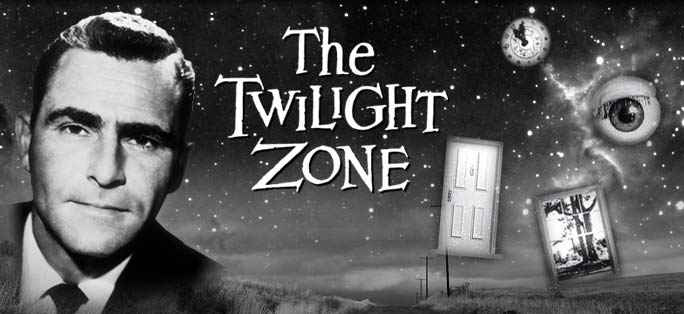Rodman Edward Serling was born in Syracuse, New York, on December 25, 1924, to a wholesale meat dealer, and grew up in Binghamton. By his own account, he had no early literary ambitions, though from an early age, he and his older brother, Robert, immersed themselves in movies and in shows like Astounding Stories and Weird Tales. Rod was best known from the intro where he was seen wearing a suit and most often dangling a cigarette, which was unfortunately the cause of his untimely demise.
“There is a fifth dimension beyond that which is known to man. It is a dimension as vast as space and as timeless as infinity. It is the middle  ground between light and shadow, between science and superstition, and it lies between the pit of man’s fears, and the summit of his knowledge. This is the dimension of imagination. It is an area which we call… THE TWILIGHT ZONE,” Serlings masterpiece would not come until later in his writing career. He began writing full-time in 1951, more than seventy of his television scripts were produced, garnering both critical and public acclaim.
ground between light and shadow, between science and superstition, and it lies between the pit of man’s fears, and the summit of his knowledge. This is the dimension of imagination. It is an area which we call… THE TWILIGHT ZONE,” Serlings masterpiece would not come until later in his writing career. He began writing full-time in 1951, more than seventy of his television scripts were produced, garnering both critical and public acclaim.
Full-scale success came early in 1955 with the production of a script called “Patterns,” deemed a “creative triumph” by critics, and the winner of the first of Serling’s six Emmy awards. Serling went to work on screenplays for MGM and as a writer for Playhouse 90, for which he crafted ninety-minute dramas. A critical and financial success, Serling shocked many of his fans in 1957 when he left Playhouse 90 to create a science fiction series he called The Twilight Zone. 156 episodes of Twilight Zone, ninety-two written by Serling, aired on CBS over the next five years. The show went on to be one of the most widely recognized and beloved series in television history, and achieved a permanent place in American pop culture with its instantly recognizable opening, theme song and charismatic host, Rod Serling. With appearances by personalities such as Robert Redford, Burt Reynolds, Dennis Hopper, and more, Twilight Zone became a launching pad for some of Hollywood’s biggest stars.
The show headed downhill in its fifth season chiefly due to the fact that Serling lost most creative control of the show. After production ended in January 1964, Serling continued to write for film and television series and movies, and often appeared in his own productions, such as Rod Serling’s Night Gallery. He returned to Antioch College as a professor and lectured at college campuses across the country. Politically active, Serling spoke out against the Vietnam War in the late Sixties and early Seventies. Everything he did was a masterpiece; from Twilight Zone to Night Gallery his work will go down in history and definitely live on as a part of pop culture. Unfortunately his life was cut short before mine was to begin, on June 28, 1975 in Rochester, New York; he passed away due to complications arising from a coronary bypass operation.
